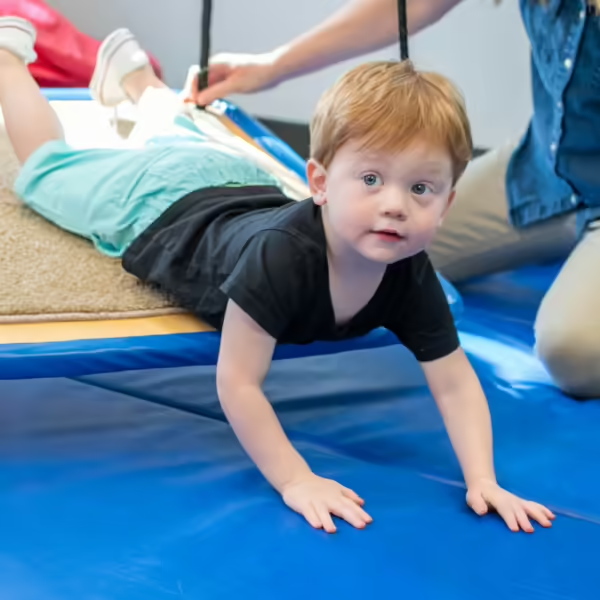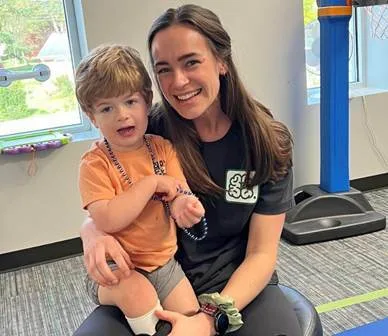Physical Therapy
Pediatric Physical Therapy Charlotte, NC
We provide services to children, teens and young adults with developmental, neurological and congenital impairments. Services can be habilitative (learning a skill for the first time) or rehabilitative (becoming more proficient at a skill or relearning a skill). We focus on improving and adapting a child’s gross motor abilities.

Who it's for
If you notice difficulties in one or more of these areas, an evaluation and treatment may be appropriate:
Coordination
Endurance
Flexibility
Gait
Gross Motor Skill Acquisition
Motor Planning
Muscle Strength
Postural Alignment
Range Of Motion
Strength in trunk and legs
Surgical Rehabilitation
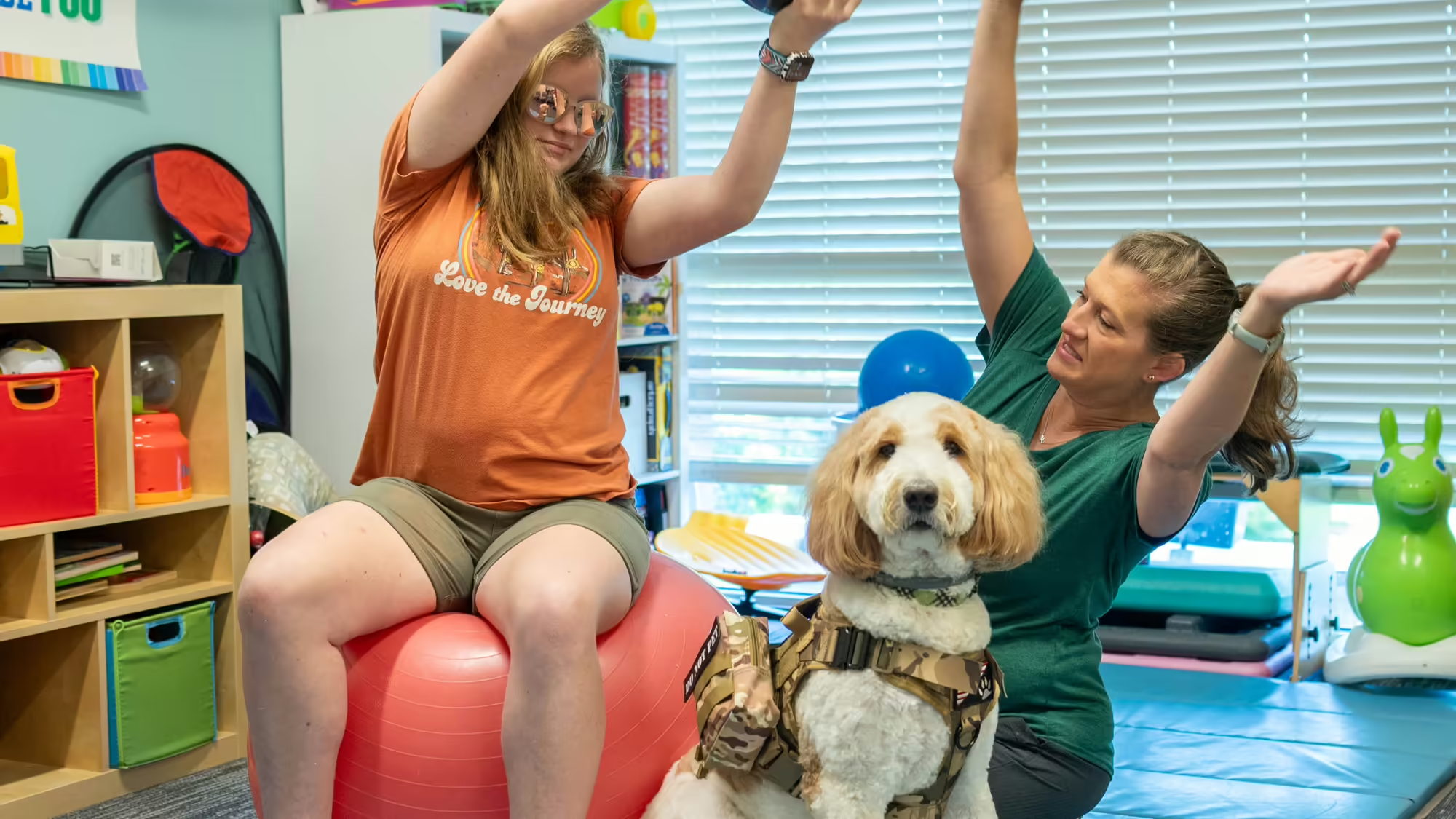
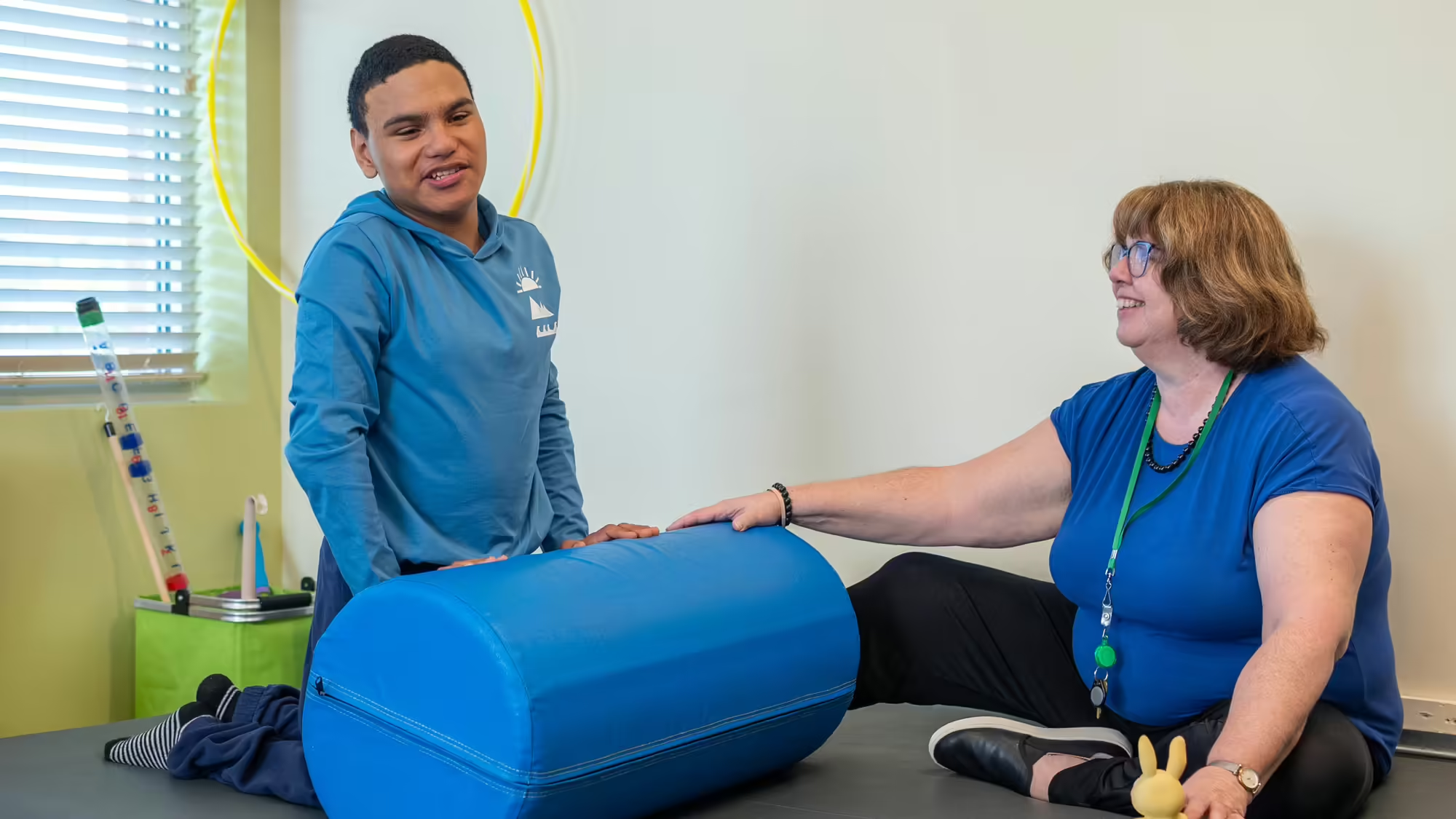
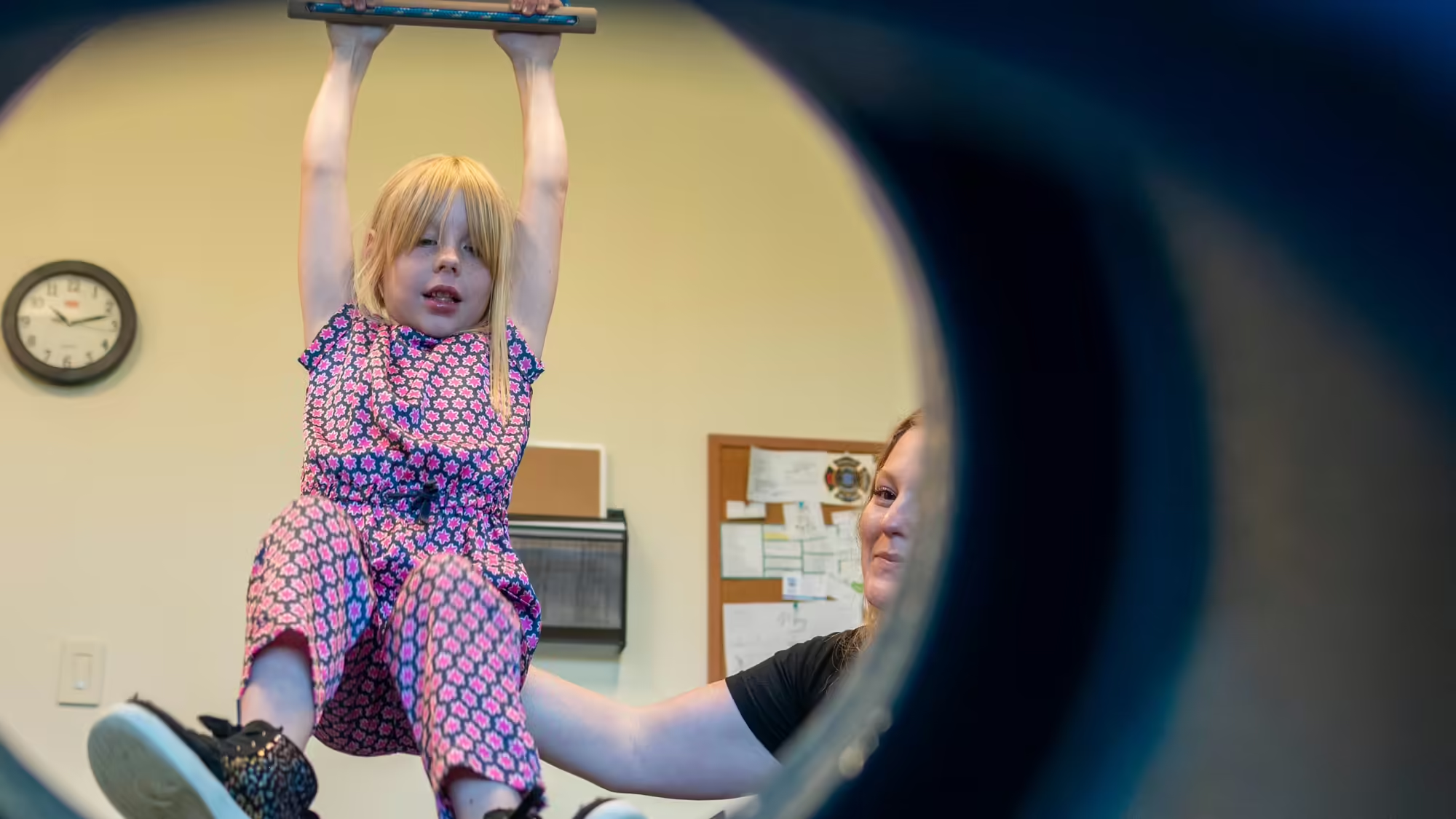

How we address it
Adaptive Equipment Assessment and Management
Amplified Musculoskeletal Pain (AMP)/Chronic Pain and Complex Regional Pain Syndrome (CRPS) Treatment
Aquatic Therapy
Cranio-sacral Treatment (CST)
Intensive Therapy Program
Kinesiotaping and Strapping
Learn To Ride A Bike
Music Groups
Neuro-Developmental Treatment™ (NDT)
Neuromuscular Electrical Stimulation (NMES)
Proprioceptive Neuromuscular Facilitation (PNF)
Serial Casting
Total Motion Release® (TMR)
Skilled intervention techniques
Learn more about our approaches
Questions from Parents
When should I consider pediatric physical therapy for my child?
Caregivers might seek physical therapy if their child is showing developmental delays, difficulty reaching physical milestones (such as rolling, sitting up, crawling, walking, jumping, running, or riding bikes and scooters), or has been diagnosed with conditions like cerebral palsy, muscular dystrophy, or Down syndrome. It’s also common for children with sports injuries, scoliosis, genetic or neurological disorders to benefit from physical therapy.
Do I need a referral to seek physical therapy services for my child?
In North and South Carolina, no, you do not need a referral to seek PT services due to direct access laws allow patients (including children) to see a physical therapist without a doctor’s referral. This means you can schedule an appointment directly with a pediatric physical therapist, and they can begin an assessment and treatment plan right away. Some health insurance plans may still require a referral from a pediatrician or primary care doctor to cover the cost of physical therapy. Check with your insurance provider to confirm if they require a referral for physical therapy services to be covered.
When should I seek physical therapy for my child who walks on their toes?
If a child walks on their toes for more than 2-3 months in the first 6 months of walking, is over the age of 2 years, has muscle tightness or pain in their calf, has difficulty with balance or coordination, trips frequently, fatigues when walking, or is unable to walk flat footed with minimal verbal reminders, they may benefit from physical therapy services. Long term toe walking can cause boney structural and alignment changes that can become more permanent over time as well as lead to weakness in certain muscle groups and overuse of other muscle groups that can affect gross motor skills in other areas of a child’s development.
Can physical therapy help my clumsy child?
Many parents report their child is clumsy and it can be difficulty to recognize if this is a part of development and adjusting to a growing body or an area of concern. A physical therapist can assist a child in learning ways to improve their motor planning abilities and becoming more successful with gross motor learning and performance.
Can physical therapy help my child with chronic pain?
Chronic pain in children and teens is complex and it can be difficult to diagnose the root cause of the pain. Physical therapists can help a child or teen relearn how to use the affected body part, regain strength, desensitize to touch, and return to their prior level of function at home, school, and in their community. Chronic pain that does not respond to traditional pain relieving treatments can be part of a condition called Amplified Musculoskeletal Pain Syndrome (AMPS). Successful treatment of AMPS requires a specialized approach by a medical and therapy team trained in this condition.
Why is crawling an important motor milestone?
Crawling is an important pre-walking milestone because it provide important input to the entire body with long lasting benefits including coordinating the right and left sides of the body, developing trunk and extremity strength and flexibility, developing the arches in the hands, integrating sensory input coming into the body, and providing the ability to see the environment in a different way.
In their own words

Scott Harvey
MPT from Western University
BEng from McGill University
Pineville
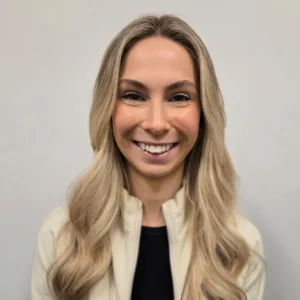
Bailey Hill
DPT from Western Carolina University
B.S. University of North Carolina at Chapel Hill
Midtown

Erin Krueger
DPT University of North Carolina at Chapel Hill
BS University of North Carolina at Chapel Hill
Pineville

Chelsea Mihm
DPT from Marquette University
B.S. in Exercise Physiology from Marquette University
Midtown

Abby Morton
DPT University of Tennessee Health Science Center
BS University of Arkansas
Midtown

Amanda Stone
DPT Medical University of South Carolina
BS Anderson University
Pineville

Jessica Turchin
MPT Quinnipiac University
BS Quinnipiac University
Pineville
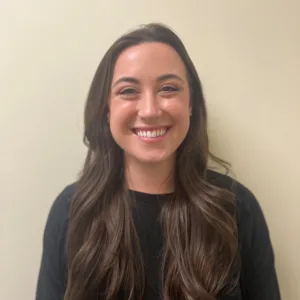
Bailey Wiggins
DPT University of South Alabama
BS Mississippi State University
Pineville
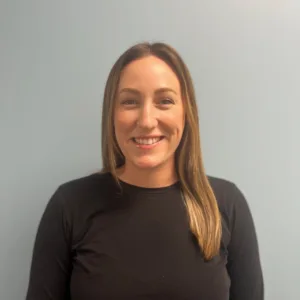
Jordan Wopinski
DPT University of St. Augustine for Health Sciences
BS University of Central Florida
Midtown
Insurance for Physical Therapy
C&FD accepts the following Insurance for Physical Therapy:
· Aetna
· Aetna State Health Plan
· Blue Cross Blue Shield of NC Cigna
· Healthgram
· Medcost
· Medicaid
· NC Direct
· NC Health Choice
· Healthy Blue NC
· Carolina Complete Health NC
· Wellcare NC
· Amerihealth Caritas NC
· United Healthcare
· Will file with out-of-network plans
Free Consultation
Your first step: Schedule a free consultation with a Physical Therapist to talk with an expert.




